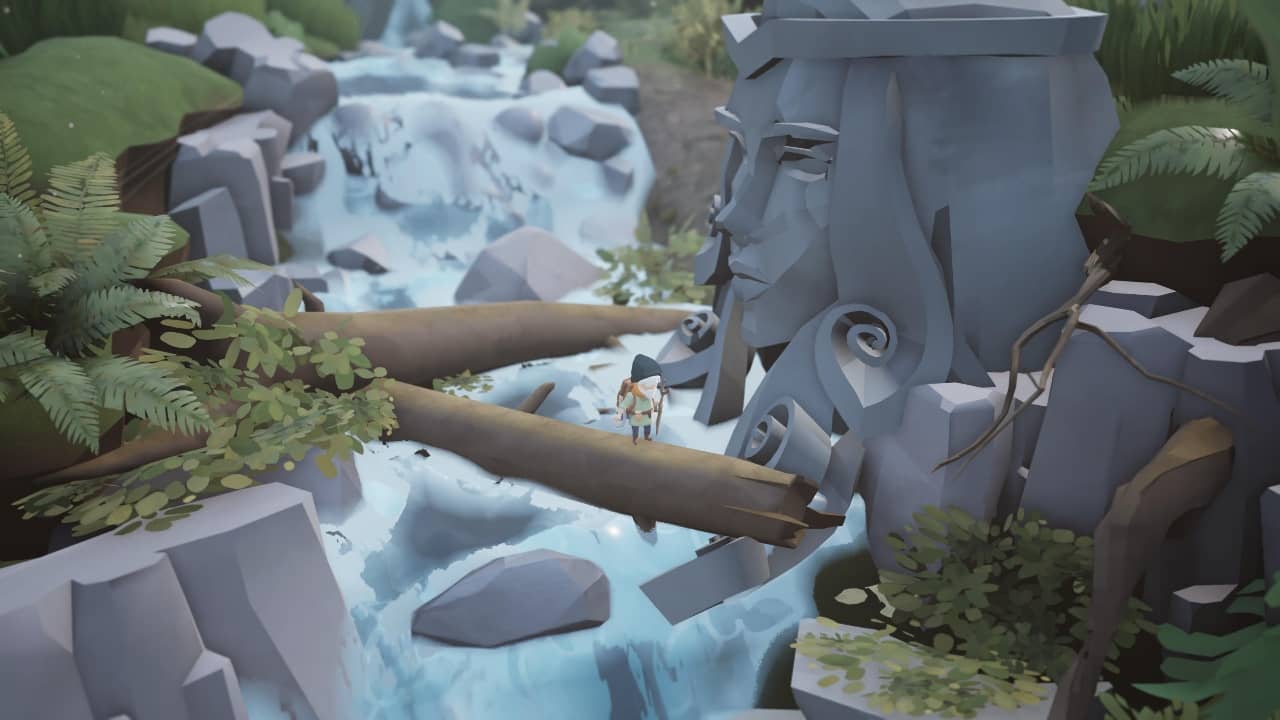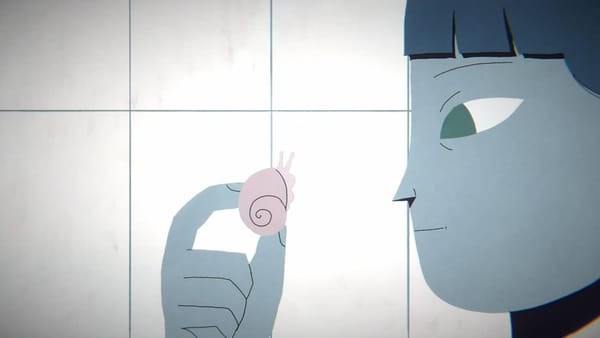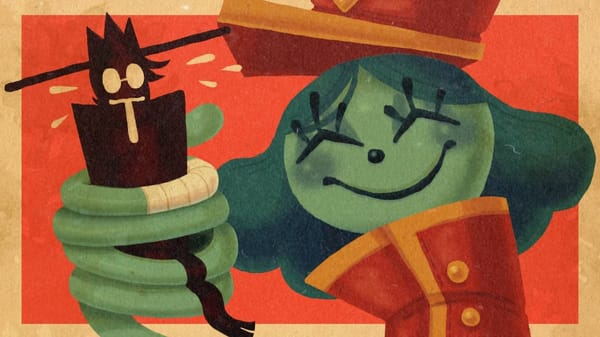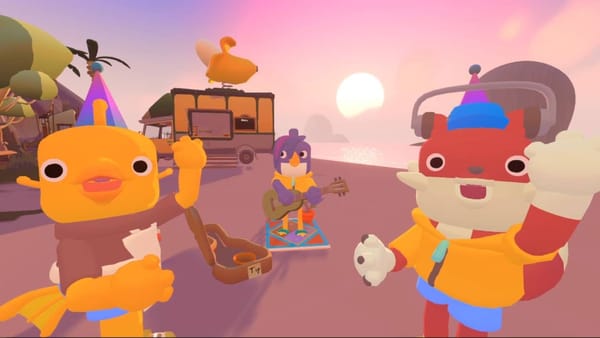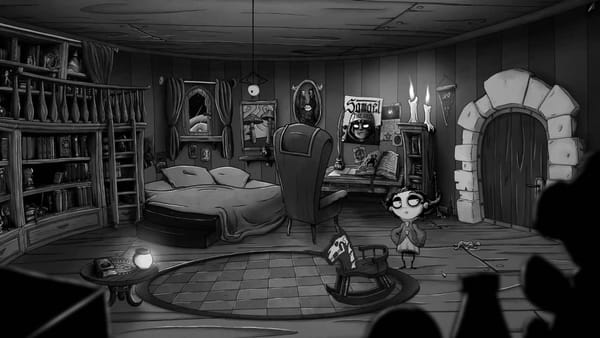We've heard that the people who are left behind have to pick up the pieces, and for Selfloss' Kazimir, that means living a life of emptiness without direction. Actions create consequences, and for those he commits, Kazimir is met by Marena, the god of Leeway, and entrusted with locating a living orca. In helping others, his own journey has just begun.
Finding an orca will be a quest in itself, even though it appears to be 'just across the water' on a nearby map. Miasma corrupts the world and physically prevents Kazimir from progressing. He'll need to blast it out of the way using light from his staff, destroy infected enemies, solve a variety of pressure pad and light-based puzzles, and help some unfortunates with a ritual, coincidentally named Selfloss.
Besides the attacks and puzzle solving, the staff can lure spirits like the Pied Piper and heal Kazimir from the miasma, among other skills. The controls are from a twin-stick shooter perspective, with the DualSense's right stick controlling the staff and the left propelling Kazimir's worn-out legs through Leeway. Using L2 as an action button does take some getting used to, especially when it moonlights as a fiddly jump option. This proves particularly problematic with the camera angles, as the camera can move at a geriatric's pace, which is fine in the first two chapters but disruptive when faced with enemies behind a wall or when sailing and the foreground compromises your movements.
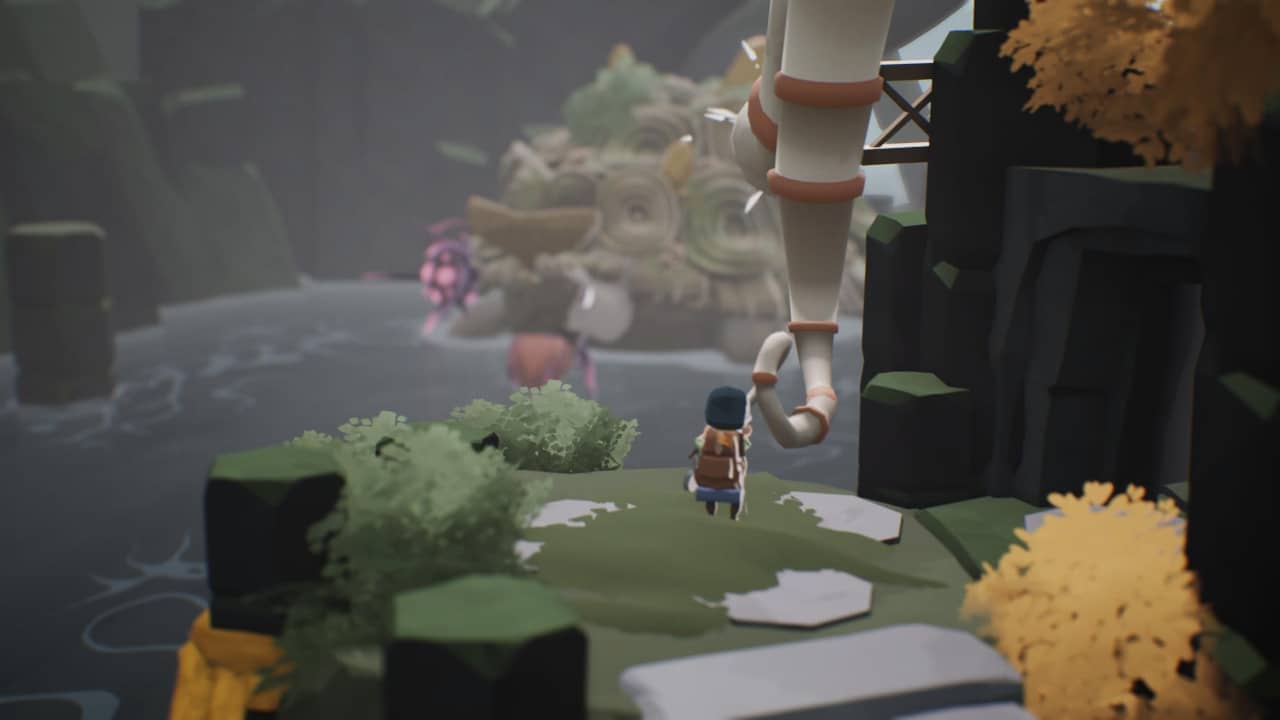
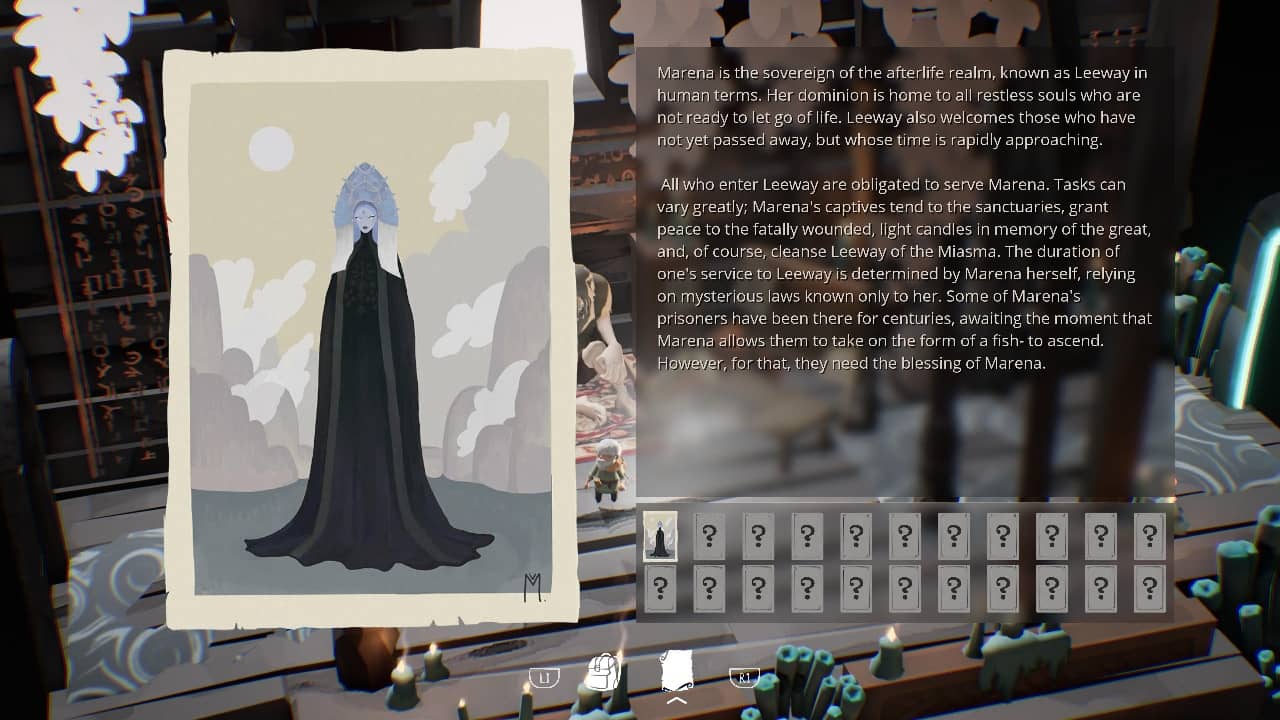
Selfloss' camera movements are, of course, reflective of Kazimir's tempo. He's an old, though not frail, man with a frame that matches his assumed age. Rolling is used to dodge any danger, and it's not an action not recommended for spamming, as he'll break out in a literal sweat, much like sprinting. And as for fall damage? This isn't Caravan SandWitch. Coupled with some frustrating combat (a combination of speed and accuracy), Selfloss spikes somewhat from being a calm and collected experience to Dark Souls-like 'You Died' title cards that are more frequent than they should be.
In one chase sequence, far from those seen in Gori: Cuddly Carnage, I had to repeat the whole run to line up Kazimir for the jump. Because there's no dedicated jump button, you must wait until a specified point and look for an L2 mark. Even then, this doesn't always trigger, resulting in falling off ledges or having to circle the foot of a ladder until it works. The redeeming factors are the world-building and its design. Despite the bleak tones and linear narrative, it's a welcoming environment that encourages exploration and invites further study into Slavic and Icelandic folklore, depending on your interests.
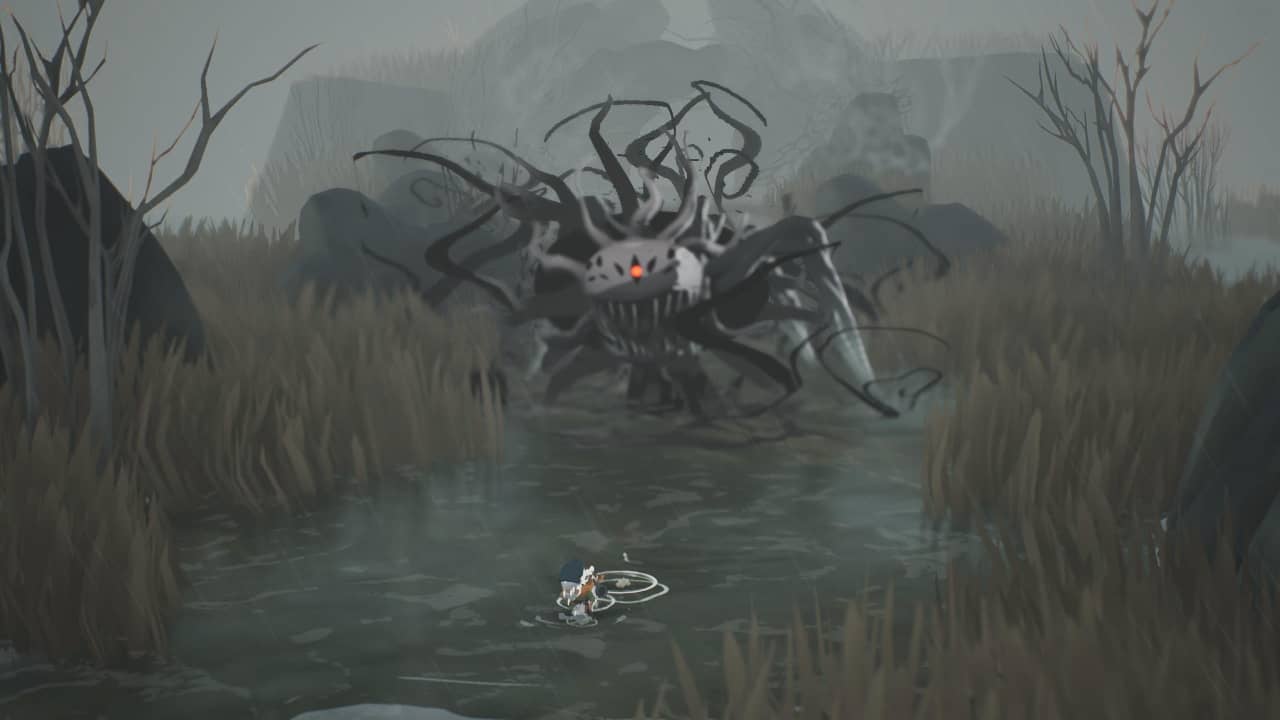
At the start of Selfloss, a giant informs you of missing scrolls. These optional quests open for discovery, completing puzzles, and exploring the environment. Upon casting your staff on them, a tarot-like entry appears in your inventory. It provides just the right amount of information to explain the lore without being verbose and a titbit of information that prompts a search on Wikipedia, then down the rabbit hole at your local library. There's been a deluge of Salvic folklore-inspired titles over the last few years, and Selfloss' take is a highlight - including a cameo by everyone's favourite chicken-legged hut.
While I can't casually ignore a few moments of wanting to quit the game a handful of times due to that sudden rise in challenge, awkward angles and the odd missed item that prevented a first-run platinum, the overall experience outweighs these... niggles. For the majority of gameplay, I'd forgotten the world around me, methodically exploring everywhere in the game, admiring how the levels were structured, and thoroughly enjoying the puzzles. As a narrative-driven gamer, one of the biggest takeaways is that this isn't necessarily a tale about redemption: it's the focus of being selfless, completing tasks not for the XP gains or new gear, but to help others. Goodwin Games has done an amazing job here.
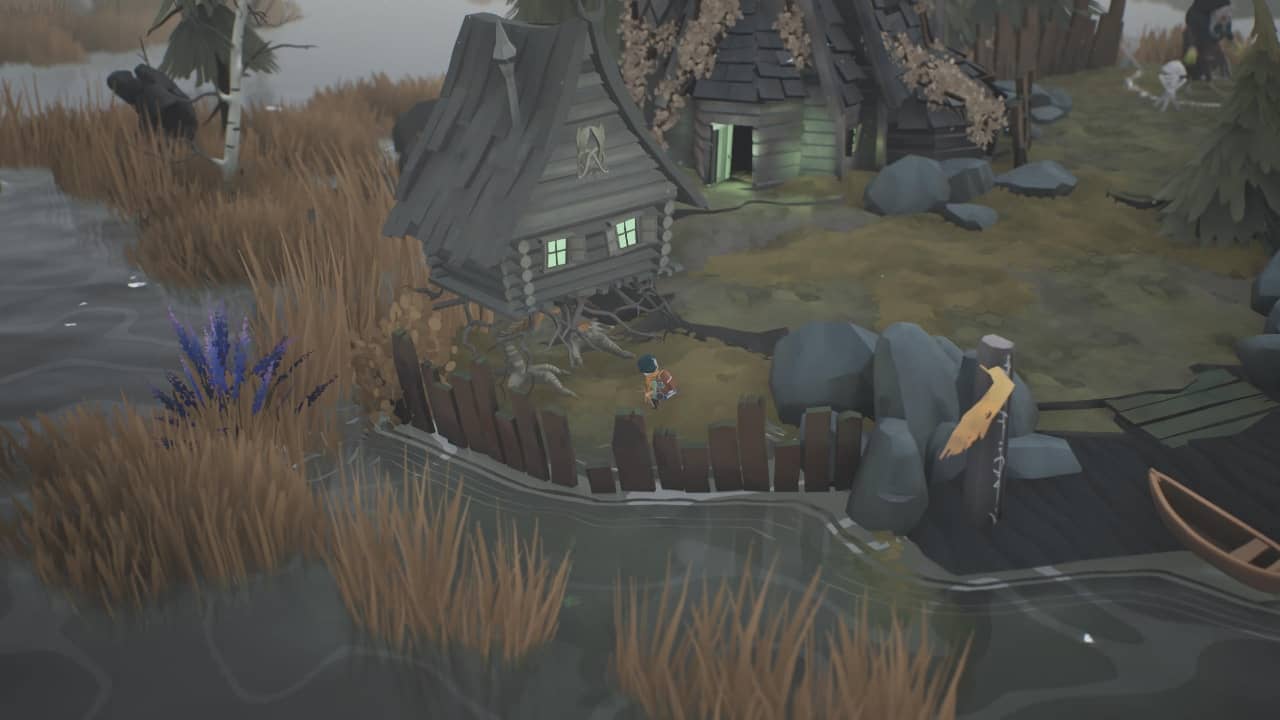
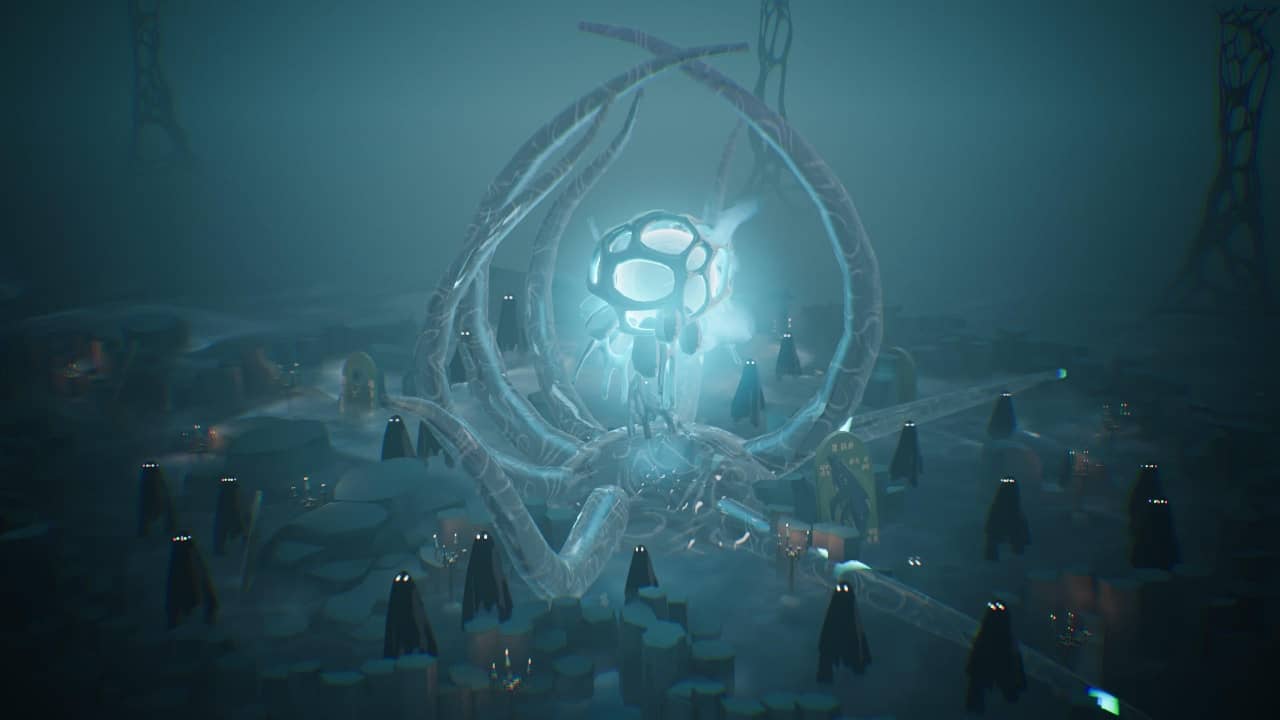
Selfloss Review Summary
Selfloss isn't a misleading title. It covers grief, sorrow, rituals, and selfless acts for the benefit of others. Though powerful messages, it never feels preachy; it truly is a captivating concept and a visually pleasing game. The camera pace, fiddly platforming, and spike in difficulty take Selfloss from serene to strenuous at times, but the payoff is worth it. A heartfelt experience, and irrespective of the themes, not as melancholy as it sounds.


